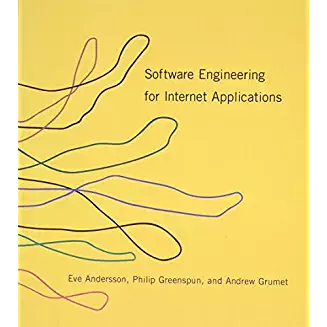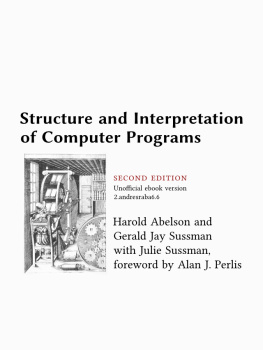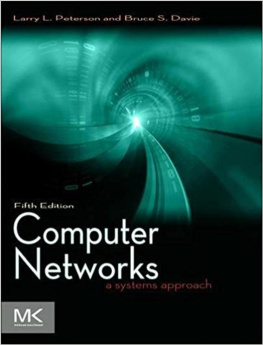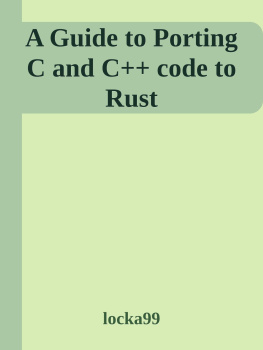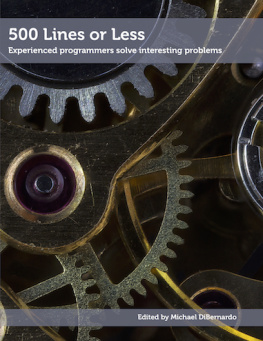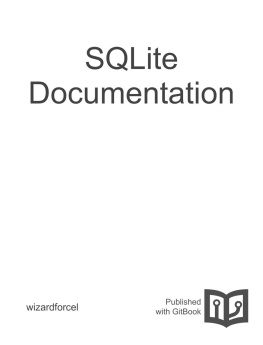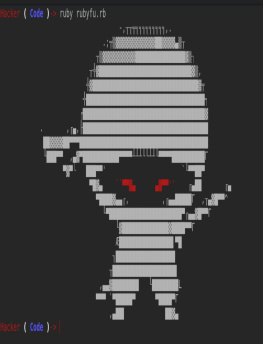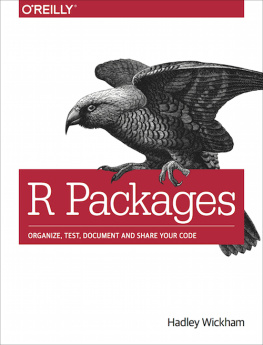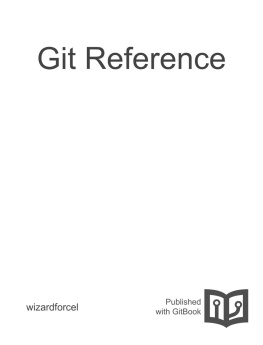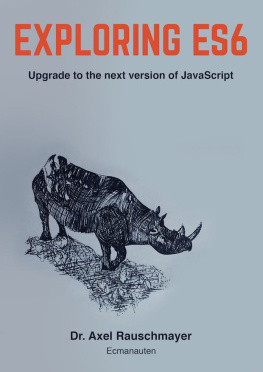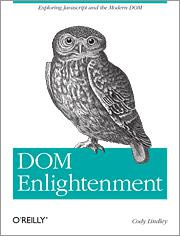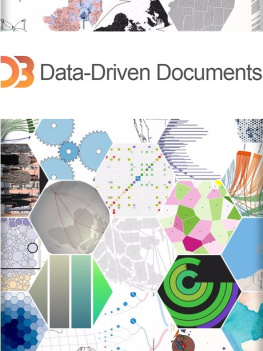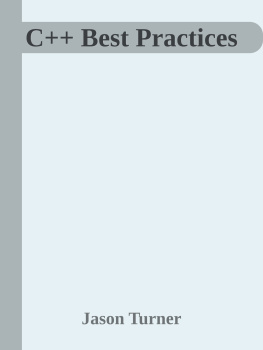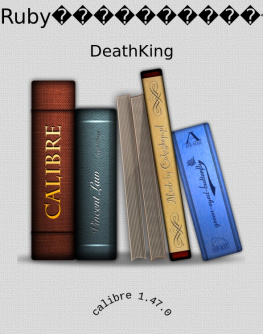it-ebooks - Advanced R
Here you can read online it-ebooks - Advanced R full text of the book (entire story) in english for free. Download pdf and epub, get meaning, cover and reviews about this ebook. year: 2018, publisher: iBooker it-ebooks, genre: Home and family. Description of the work, (preface) as well as reviews are available. Best literature library LitArk.com created for fans of good reading and offers a wide selection of genres:
Romance novel
Science fiction
Adventure
Detective
Science
History
Home and family
Prose
Art
Politics
Computer
Non-fiction
Religion
Business
Children
Humor
Choose a favorite category and find really read worthwhile books. Enjoy immersion in the world of imagination, feel the emotions of the characters or learn something new for yourself, make an fascinating discovery.

- Book:Advanced R
- Author:
- Publisher:iBooker it-ebooks
- Genre:
- Year:2018
- Rating:5 / 5
- Favourites:Add to favourites
- Your mark:
- 100
- 1
- 2
- 3
- 4
- 5
Advanced R: summary, description and annotation
We offer to read an annotation, description, summary or preface (depends on what the author of the book "Advanced R" wrote himself). If you haven't found the necessary information about the book — write in the comments, we will try to find it.
Advanced R — read online for free the complete book (whole text) full work
Below is the text of the book, divided by pages. System saving the place of the last page read, allows you to conveniently read the book "Advanced R" online for free, without having to search again every time where you left off. Put a bookmark, and you can go to the page where you finished reading at any time.
Font size:
Interval:
Bookmark:
From: http://adv-r.had.co.nz/
With more than 10 years experience programming in R, Ive had the luxury of being able to spend a lot of time trying to figure out and understand how the language works. This book is my attempt to pass on what Ive learned so that you can quickly become an effective R programmer. Reading it will help you avoid the mistakes Ive made and dead ends Ive gone down, and will teach you useful tools, techniques, and idioms that can help you to attack many types of problems. In the process, I hope to show that, despite its frustrating quirks, R is, at its heart, an elegant and beautiful language, well tailored for data analysis and statistics.
If you are new to R, you might wonder what makes learning such a quirky language worthwhile. To me, some of the best features are:
Its free, open source, and available on every major platform. As a result, if you do your analysis in R, anyone can easily replicate it.
A massive set of packages for statistical modelling, machine learning, visualisation, and importing and manipulating data. Whatever model or graphic youre trying to do, chances are that someone has already tried to do it. At a minimum, you can learn from their efforts.
Cutting edge tools. Researchers in statistics and machine learning will often publish an R package to accompany their articles. This means immediate access to the very latest statistical techniques and implementations.
Deep-seated language support for data analysis. This includes features likes missing values, data frames, and subsetting.
A fantastic community. It is easy to get help from experts on the R-help mailing list, stackoverflow, or subject-specific mailing lists like R-SIG-mixed-models or ggplot2. You can also connect with other R learners via twitter, linkedin, and through many local user groups.
Powerful tools for communicating your results. R packages make it easy to produce html or pdf reports, or create interactive websites.
A strong foundation in functional programming. The ideas of functional programming are well suited to solving many of the challenges of data analysis. R provides a powerful and flexible toolkit which allows you to write concise yet descriptive code.
An IDE tailored to the needs of interactive data analysis and statistical programming.
Powerful metaprogramming facilities. R is not just a programming language, it is also an environment for interactive data analysis. Its metaprogramming capabilities allow you to write magically succinct and concise functions and provide an excellent environment for designing domain-specific languages.
Designed to connect to high-performance programming languages like C, Fortran, and C++.
Of course, R is not perfect. Rs biggest challenge is that most R users are not programmers. This means that:
Much of the R code youll see in the wild is written in haste to solve a pressing problem. As a result, code is not very elegant, fast, or easy to understand. Most users do not revise their code to address these shortcomings.
Compared to other programming languages, the R community tends to be more focussed on results instead of processes. Knowledge of software engineering best practices is patchy: for instance, not enough R programmers use source code control or automated testing.
Metaprogramming is a double-edged sword. Too many R functions use tricks to reduce the amount of typing at the cost of making code that is hard to understand and that can fail in unexpected ways.
Inconsistency is rife across contributed packages, even within base R. You are confronted with over 20 years of evolution every time you use R. Learning R can be tough because there are many special cases to remember.
R is not a particularly fast programming language, and poorly written R code can be terribly slow. R is also a profligate user of memory.
Personally, I think these challenges create a great opportunity for experienced programmers to have a profound positive impact on R and the R community. R users do care about writing high quality code, particularly for reproducible research, but they dont yet have the skills to do so. I hope this book will not only help more R users to become R programmers but also encourage programmers from other languages to contribute to R.
This book is aimed at two complementary audiences:
Intermediate R programmers who want to dive deeper into R and learn new strategies for solving diverse problems.
Programmers from other languages who are learning R and want to understand why R works the way it does.
To get the most out of this book, youll need to have written a decent amount of code in R or another programming language. You might not know all the details, but you should be familiar with how functions work in R and although you may currently struggle to use them effectively, you should be familiar with the apply family (like apply() and lapply()).
This book describes the skills I think an advanced R programmer should have: the ability to produce quality code that can be used in a wide variety of circumstances.
After reading this book, you will:
Be familiar with the fundamentals of R. You will understand complex data types and the best ways to perform operations on them. You will have a deep understanding of how functions work, and be able to recognise and use the four object systems in R.
Understand what functional programming means, and why it is a useful tool for data analysis. Youll be able to quickly learn how to use existing tools, and have the knowledge to create your own functional tools when needed.
Appreciate the double-edged sword of metaprogramming. Youll be able to create functions that use non-standard evaluation in a principled way, saving typing and creating elegant code to express important operations. Youll also understand the dangers of metaprogramming and why you should be careful about its use.
Have a good intuition for which operations in R are slow or use a lot of memory. Youll know how to use profiling to pinpoint performance bottlenecks, and youll know enough C++ to convert slow R functions to fast C++ equivalents.
Be comfortable reading and understanding the majority of R code. Youll recognise common idioms (even if you wouldnt use them yourself) and be able to critique others code.
There are two meta-techniques that are tremendously helpful for improving your skills as an R programmer: reading source code and adopting a scientific mindset.
Reading source code is important because it will help you write better code. A great place to start developing this skill is to look at the source code of the functions and packages you use most often. Youll find things that are worth emulating in your own code and youll develop a sense of taste for what makes good R code. You will also see things that you dont like, either because its virtues are not obvious or it offends your sensibilities. Such code is nonetheless valuable, because it helps make concrete your opinions on good and bad code.
A scientific mindset is extremely helpful when learning R. If you dont understand how something works, develop a hypothesis, design some experiments, run them, and record the results. This exercise is extremely useful since if you cant figure something out and need to get help, you can easily show others what you tried. Also, when you learn the right answer, youll be mentally prepared to update your world view. When I clearly describe a problem to someone else (the art of creating a reproducible example), I often figure out the solution myself.
Font size:
Interval:
Bookmark:
Similar books «Advanced R»
Look at similar books to Advanced R. We have selected literature similar in name and meaning in the hope of providing readers with more options to find new, interesting, not yet read works.
Discussion, reviews of the book Advanced R and just readers' own opinions. Leave your comments, write what you think about the work, its meaning or the main characters. Specify what exactly you liked and what you didn't like, and why you think so.

